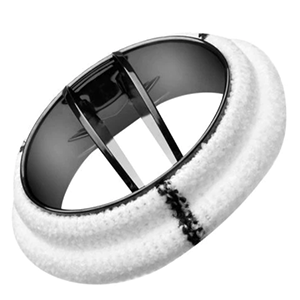Original Articles
Vol. 1 No. 2 (2022)
Major bleedings in mechanical prosthetic heart valves patients on Vitamin K antagonist treatment. Data from the PLECTRUM Study

Publisher's note
All claims expressed in this article are solely those of the authors and do not necessarily represent those of their affiliated organizations, or those of the publisher, the editors and the reviewers. Any product that may be evaluated in this article or claim that may be made by its manufacturer is not guaranteed or endorsed by the publisher.
All claims expressed in this article are solely those of the authors and do not necessarily represent those of their affiliated organizations, or those of the publisher, the editors and the reviewers. Any product that may be evaluated in this article or claim that may be made by its manufacturer is not guaranteed or endorsed by the publisher.
Received: 11 April 2022
Accepted: 6 July 2022
Accepted: 6 July 2022
5033
Views
599
Downloads
Similar Articles
- PO31 | Comparative analysis of anticoagulant therapy in patients over 90 years old: vitamin K antagonists versus direct oral anticoagulants , Bleeding, Thrombosis and Vascular Biology: Vol. 4 No. s1 (2025)
- Alice Lipari, Esmeralda Capristo, Antonietta Ferretti, Erica De Candia, Anticoagulation in obese patients: challenges and strategies , Bleeding, Thrombosis and Vascular Biology: Vol. 4 No. 3 (2025)
- Emanuele Valeriani, Arianna Pannunzio, Danilo Menichelli, Domenico Prisco, Walter Ageno, Daniele Pastori, Pasquale Pignatelli, Executive summary of the SISET position paper on the management of antithrombotic therapy in left ventricular thrombus , Bleeding, Thrombosis and Vascular Biology: Vol. 4 No. 3 (2025)
- Gianfranco De Girolamo, Luca Sarti, Sonia Cecoli, Karin Bonora, Chiara Ajolfi, Francesco Bellelli, Valeria Coluccio, Gualtiero Palareti, Marco Marietta, Safety and efficacy of treatment with vitamin K antagonists in patients managed in a network of anticoagulation services or as routine general care , Bleeding, Thrombosis and Vascular Biology: Vol. 1 No. 1 (2022)
- PO93 | Use of DOACS in heart transplantation recipients , Bleeding, Thrombosis and Vascular Biology: Vol. 4 No. s1 (2025)
- PO29 | Quality of anticoagulation as a predictor of early left ventricular thrombosis resolution: a retrospective cohort study , Bleeding, Thrombosis and Vascular Biology: Vol. 4 No. s1 (2025)
- CO11 | Oral anticoagulation with vitamin K antagonists in early childhood: a single centre-experience , Bleeding, Thrombosis and Vascular Biology: Vol. 4 No. s1 (2025)
- PO89 | Apixaban for secondary prevention of venous thromboembolism in hemodialysis patients: pharmacokinetic profile and safety outcomes , Bleeding, Thrombosis and Vascular Biology: Vol. 4 No. s1 (2025)
- Daniela Poli, Walter Ageno, Emilia Antonucci, Salvatore Bradamante, Eugenio Bucherini, Paolo Chiarugi, Antonio Chistolini, Benilde Cosmi, Anna Falanga, Antonio Insana, Domenico Lione, Rosa Maria Lombardi, Giuseppe Malcangi, Rossella Marcucci, Giuliana Martini, Lucilla Masciocco, Carmelo Paparo, Daniele Pastori, Simona Pedrini, Vittorio Pengo, Pasquale Pignatelli, Andrea Toma, Sophie Testa, Gualtiero Palareti, Management of anticoagulation in atrial fibrillation patients in Italy: insight from the Atrial Fibrillation-Survey on Anticoagulated Patients Register (AF-START) , Bleeding, Thrombosis and Vascular Biology: Vol. 2 No. 2 (2023)
- Francesco Marongiu, Elvira Grandone, Silvia Marongiu, Antonella Mameli, Doris Barcellona, Stroke in women: anticoagulation in a complicated puzzle , Bleeding, Thrombosis and Vascular Biology: Vol. 3 No. 2 (2024)
1-10 of 179
Next
You may also start an advanced similarity search for this article.
Most read articles by the same author(s)
- Stefania Momi, Giuseppe Guglielmini, Giulia Ciarroca Taranta, Elisa Giglio, Angela Monopoli, Paolo Gresele, A nitric oxide-donor pravastatin hybrid drug exerts antiplatelet and antiatherogenic activity in mice , Bleeding, Thrombosis and Vascular Biology: Vol. 1 No. 2 (2022)
- Paolo Gresele, Artificial intelligence and machine learning in hemostasis and thrombosis , Bleeding, Thrombosis and Vascular Biology: Vol. 2 No. 4 (2023)
- Loredana Bury, Paolo Gresele, The amazing genetic complexity of anucleated platelets , Bleeding, Thrombosis and Vascular Biology: Vol. 1 No. 2 (2022)
- Roberto Mario Santi, Annamaria Fulghesu, Ezio Zanon, Erica De Candia, Elvira Grandone, Giancarlo Di Renzo, Claudia Succu, Valentina Tosto, Vincenzina Bruni, Paolo Gresele, Diagnosis and management of abnormal uterine bleeding in adolescence , Bleeding, Thrombosis and Vascular Biology: Vol. 3 No. 1 (2024)
- Paolo Gresele, Synthetic platelets: can bioengineering realize in few years what evolution made in over 200 million years? , Bleeding, Thrombosis and Vascular Biology: Vol. 3 No. 3 (2024)
- Daniela Poli, Walter Ageno, Emilia Antonucci, Salvatore Bradamante, Eugenio Bucherini, Paolo Chiarugi, Antonio Chistolini, Benilde Cosmi, Anna Falanga, Antonio Insana, Domenico Lione, Rosa Maria Lombardi, Giuseppe Malcangi, Rossella Marcucci, Giuliana Martini, Lucilla Masciocco, Carmelo Paparo, Daniele Pastori, Simona Pedrini, Vittorio Pengo, Pasquale Pignatelli, Andrea Toma, Sophie Testa, Gualtiero Palareti, Management of anticoagulation in atrial fibrillation patients in Italy: insight from the Atrial Fibrillation-Survey on Anticoagulated Patients Register (AF-START) , Bleeding, Thrombosis and Vascular Biology: Vol. 2 No. 2 (2023)
- Cristina Legnani, Michela Cini, Sophie Testa, Alberto Tosetto, Claudia Dellanoce, Stefania Bellesso, Giuseppe Carli, Ilaria Nichele, Laura Lissandrini, Serena Zorzi, Emilia Antonucci, Gualtiero Palareti, Evaluation of Coaguchek® Pro II coagulation testing device performance to assess direct oral anticoagulant action. The DOAC-CHECK study , Bleeding, Thrombosis and Vascular Biology: Vol. 1 No. 3 (2022)
- Gualtiero Palareti, Paolo Prandoni, Cristina Legnani, Emilia Antonucci, Serena Zorzi, Alberto Tosetto, Lorenza Bertù, Sophie Testa, Vittorio Pengo, Walter Ageno, Ida Martinelli, Benilde Cosmi, Eugenio Bucherini, Daniela Poli, Rationale and design of a study on D-dimer use to stratify patients after a first unprovoked venous thromboembolism for their risk of recurrence: extended low-dose Apixaban given only to patients with positive D-dimer results , Bleeding, Thrombosis and Vascular Biology: Vol. 1 No. 1 (2022)
- Gualtiero Palareti, The diagnostic procedure for subjects with suspected pulmonary embolism. A recent comparison among the recommendations available from the international guidelines , Bleeding, Thrombosis and Vascular Biology: Vol. 3 No. 1 (2024)
- Loredana Bury, Marco Malvestiti, Paolo Gresele, The 2024 Nobel prize in Medicine: impact on hemostasis and thrombosis research , Bleeding, Thrombosis and Vascular Biology: Vol. 3 No. 3 (2024)










